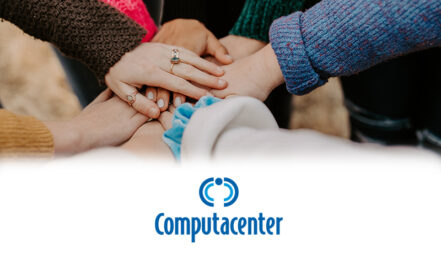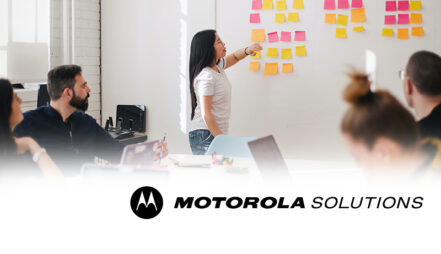10 November 2023
Does diversity and inclusion really matter?
What is D&I in practical terms? How do we as individuals contribute to creating inclusive cultures and communities? What is the role of business leaders in driving the right behaviors?
These are only a few questions I’ll be looking to answer or maybe try to inspire, or perhaps provoke you to formulate your own individual opinion.
Diversity and Inclusion should be interpreted in a much wider context than the one we know and are naturally tempted to use. Usually, being humans, we make a mistake. We cut corners. We simplify this topic without any second thought, without diving into the gist of it. As a result, we all struggle to live in communities that are truly open and secure for everyone. So let me take one step back to give us some historical context. I am certain it will help explain or at least put some more light on why D&I is perceived differently depending on where you look.
Certainly, we prefer to focus our attention on the tip of the iceberg: gender, race, and sexual identity. It is important – but are we then truly looking at the whole picture? Do we know where it has all started?
Human history is 200,000 years long. Mother Nature shaped humans as individual and unique creatures – thinking, behaving, feeling, and experiencing everything around us… well, differently. Diversity has always been with us. Fueled by our natural individualism and deep personal preferences. Fortunately, Mother Nature equipped us with limbic brain (responsible for handling emotions). This helped foster more efficient interpersonal communication. Undoubtedly it was one of the greatest achievements of our evolution. It helped us to better define our relationships with others and effectively establish rules of social life amongst more and more organized communities. This, in turn, has created new sets of expectations – we’ve made a great progress defining commonly acceptable and unacceptable behaviors or attitudes. We’ve been getting better and better at determining what is right and what is wrong. Far from perfection though, as the everlasting history of violence seems to prove even today.
This process continues to evolve. It’s pace dependent on the level of education across different communities and geographies. Race diversity and inclusivity in post-colonial countries will be a different challenge than in historically monoracial, homogenous countries. The results of efforts put into fostering gender equality will be different in well-developed versus third-world countries, where vicious reality is still based on the jungle rule of the stronger. The sexual identity and the basic strive to be ourselves against all odds, seem naturally and equally important to all of us. We want to be accepted – with all the advantages and disadvantages we may have. Finally, we all want to belong to communities we live or work in, regardless of how we look and what we believe. This inner expectation makes us – individuals – equal as human beings. The challenge we often fail to overcome? We are too much self-focused in this regard. It feels natural to demand acceptance from others, but it is also easy to forget to demonstrate acceptance and tolerance to those around us in return.
We must understand that none of the changes in the world have happened by themselves. If we want to live in an open and inclusive world tomorrow, we should develop the same behaviors today. Walk the talk. Lead by example. We cannot expect communities to drive the change alone, because society is a sum of our own behaviors. It is time we acknowledge it is us, individually, who should be tolerant and open-minded. This is the only chance we have to enable continuous evolution into more inclusive societies.
I was very much impressed and excited attending The World Values Day at 19th of October. So many young people attending the event and sharing their views and expectations around D&I. The mantra I have naturally and willingly tuned into: respect, mutual understanding, indulgence, freedom.
It was thrilling to see many students, soon-to-be professionals, being so aware and transparent in voicing what is truly important to them and understanding the long-underestimated truth: education starts at home.
We must not ignore the fact: developing responsibly open and inclusive society starts with ourselves, right here, right now, today.. This is exactly how all human rights evolved for hundreds of years.
It’s very much likely many readers of these words are very fortunate to work for responsible organizations where people are highly valued and appreciated as individuals, where a company culture drives the right behaviors and promotes inclusiveness and tolerance. I’m one of them. Unfortunately, predictably, this does not apply everywhere, all the time. Many individuals still feel excluded. And this alone is enough reason why business leaders need to start thinking in broader terms and constantly promote best practices in our workplaces and communities. Furthermore, it is the leader’s role to constantly educate communities they operate in to enhance understanding of the matter and encourage those who are reluctant or reserved to see broader picture. Leaders must not forget their pivotal role in sustaining high motivation of those who sometimes doubt individual efforts make sense. Supporting and protecting the weak and those being in minority has helped us evolve as individuals and as society.
Humble, hard work, performed relentlessly, often in the absence of any audience, aimed at promoting human rights, is part of a leader’s job description, whether we like it or not. How does this get done, is a natural question. Well, by using our skills and competencies as the only human traits that differentiate individuals in business. If we don’t do this, we have no right to expect people we lead to comprehend, let alone internalize and follow this logic.
Leaders must realize that by accepting a leadership position they naturally become ambassadors of core values of their companies. They become a human face embodying those values and are expected to follow them. This is why I’m excited to work for Computacenter – the company that has “people matter” ranking high amongst its values. A cliché, you’d say? Far from it. We trust in diversity not only because we’re launching worldwide programs that support disabilities, gender parity, sexual and racial equality. This is also not only because we’re organizing series of internal D&I interviews and panels engaging our international teams to share their perspectives. This is also not only because we try to mobilize diverse project teams and wherever possible, international training groups to create an environment where everyone takes benefit in being empowered…
These initiatives are being launched to constantly promote the D&I idea and to reveal how successful and proud Computacenter employees are, regardless of who they are and where they live. This is largely possible thanks to ongoing commitment and attitudes of many of my colleagues and co-workers, worthy of appreciation, being able to co-create psychological safety for everyone. This is Computacenter’s way of working together and wining together and key to our success.
The simple truth is, if you wish to live in an open and inclusive society – make sure you start with yourselves. Change on the inside to make an impact outside. The result may not come quickly but hey, all the things we learn to appreciate and love, never come easy. So do not give up! Keep going!
Bartosz Poździk
General manager, Country Lead
Computacenter Poland



